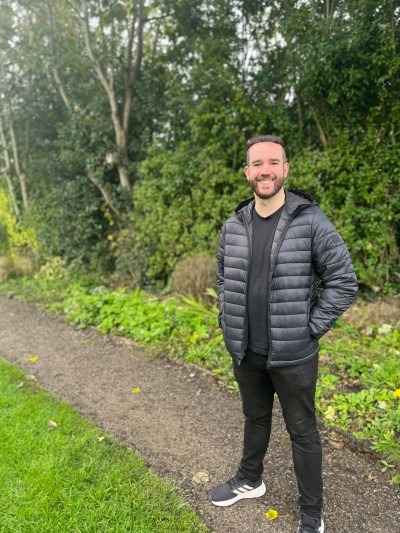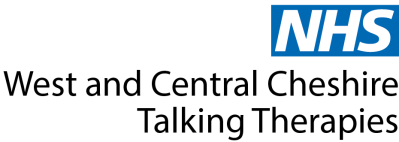
Rich, a 39-year-old dad-of-three from Cheshire, found himself in a position that unfortunately many people can relate to. Struggling to keep up with the demands of a high-pressure job and raising a young family, after working away from home regularly for over a year, his work-life balance began to crumble.
Rich explains: “I was overworked, stressed and I wasn’t getting the right level of support at work. After a while, I just burnt out”.
The impact this had was not just on Rich’s emotional wellbeing - it began to take its toll on his physical health too. After 14 years without having a day off work due to sickness, he started to become frequently unwell and felt exhausted.
“My physical health has always been particularly important to me, but I was no longer looking after it like I had previously. I began to feel tired all the time - both mentally and physically”.
Recognising the impact stress and anxiety were having on his life, Rich decided to visit his GP, who recommended NHS Talking Therapies. Taking the first step by making a self-referral to Talking Therapies was the start of change for him. Through the service, he was offered Internet-based cognitive behavioural therapy (also known as iCBT) and was also referred to the Employment Support Service to help him manage work-related stress and anxiety in preparation for a return to work.
Working closely with his Employment Advisor, together they developed a wellness action plan and monitored his progress through fortnightly phone calls. He was invited to online workshops on confidence, communication, and employability, which he found fit into his life and other commitments well. They also focused on tools and techniques which he could apply once back at work, to help manage workload and priorities.
When asked about how the Talking Therapies and Employment Support services worked together to support his recovery, Rich said: “It was great how well the two services complemented one other. The Employment Support was focused on helping me get back into work, whilst the online CBT helped me to manage my stress and anxiety, both in work and within my personal life.”
Before therapy, Rich struggled with work-related boundaries, often taking on too much, which would lead to burnout.
Rich said: “One of the biggest lessons I’ve learnt is how to say ‘no’. Now, I’m more self-aware and have learnt how to spot the signs when I am nearing my limits.”
After using the service, Rich felt confident and mentally ready to return to work. The wellness action plan helped shape conversations with his manager about changes to his working arrangements, and a phased return enabled him to steadily build up his confidence to be able to deliver in his role again.
“The tools and techniques I’ve learned through Talking Therapies and Employment Support have helped me manage my workload. I’m more focused at work, which has had a positive impact on my personal life. I’m more present with my family now, and I don’t feel the constant burden of work hanging over my head. My relationships at home have grown stronger, and I’m clearer on where my priorities lie.”
Rich advises anyone who is facing similar challenges to considering reaching out to NHS Talking Therapies and Employment Support.
“Don’t bottle things up - talk to someone and use the services available to you. You don’t need to feel alone with your struggles. They are only temporary and services like Talking Therapies can help you get back to where you want to be.”

